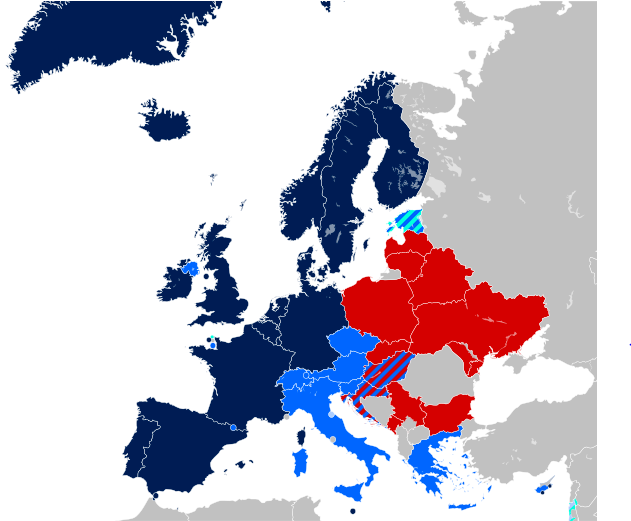By Bogdan Gradinaru for DiEM25.
The map above depicts countries where gay marriage is recognized (dark blue), where it is confined to a civil union (light blue), where it is not recognised (red) and where the issue is, well, a grey area. Let me to point your attention to the only EU “grey spot”, namely Romania.
To quote from Romanian Constitution, article 48: “marriage is grounded in the free consent between spouses”. Whether “spouses” could be of the same sex, is left open. This was the backdoor through which the current establishment party, PSD (Social Democratic Party) were able to clamp down on sexual-minority rights in Romania and endorse, along with the Romanian Orthodox Church, a campaign against gay marriage.
In this spirit, a gathering of more than 40 groups, many of them religious or describing themselves as “pro-life”, started in 2015 the so-called “Coalition for the family”. The alliance’s goal is to amend the Constitution to explicitly specify that marriage is the union between a man and a woman (like the other red countries in the map above).
And they’ve been pretty successful so far – in just a few months they were able to gather over 3 million signatures to take the initiative to parliament. Moreover it is likely they will make big gains in November, when a national referendum could be called to change the constitution. In this respect, Romania is following its regional neighbours, Croatia, Poland and Hungary.
But there is more than that at stake. This sad story is after all about Romania’s conservative establishment, political as well as social, and the perverse way in which it is exploiting the deeply rooted rural mentality of large parts of its population.
It is about the battle for progressive ideas, like those of DiEM25’s Progressive Agenda. Grassroots democracy lives and flourishes where minorities are not subdued by authoritarianism. We should all be aware of this, and push hard against it.
Bogdan is a member of DSC Bucharest, but also a humble engineer living in Munich. His main points of interest are socio-political issues of South-East Europe, as well as promoting DiEM25 there.
(Are you in Romania? Join our local group there!)










